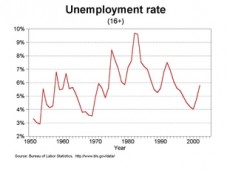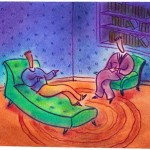Published: December 14, 2010
Results Challenge Previous Findings on Unemployment and Mental Health
Losing a job is a profoundly distressing experience, but the unemployed may be more resilient than previously believed – the vast majority eventually end up as satisfied with life as they were before they lost their jobs, according to a new analysis published by the American Psychological Association. [continue reading…]
Published: August 17, 2009
After a layoff, your self-esteem and personal relationships may take a hit. Your bank account and quality of life may both spiral downward. You may not even be sure you can pay your mortgage or rent.
And now you’re supposed to go out and convince employers that you’d be a great hire? Phyllis Korkki looks at ways of taking the edge off negative emotions in this New York Times piece……continue reading
Being laid off “is a profound loss”. It can lead to feelings of humiliation, embarrassment, sadness, guilt and frustration. And if you are supporting other people financially, a host of other powerful emotions and worries can be released. Dr. Molitor
Consider, too, that a layoff removes people from the structure and camaraderie of daily working life and can plunge them into unaccustomed isolation — a possible precursor to stress and depression.
Source: New York Times
Published: February 9, 2009

Strategies for coping when the red lines go in the wrong direction.
“You cannot fix the economic crisis but you can survive. The following tips for those at both ends of the financial spectrum can help your psychological survival,” writes Nancy Schlossberg, professor emerita at the University of Maryland and author of Revitalizing Retirement: Reshaping Your Identity, Relationships and Purpose. Here’s her advice for adapting to the nation’s growing financial crisis.
[continue reading…]
Published: January 23, 2009

© Getty Images
Stacey Rosenberg, a former marketing manger in Boston, knows the catastrophic feeling of a layoff. She has lost her job twice in the midst of the recession.
“When I first got laid off, I sort of had a mission. I wanted to get a new job as quickly as possible, and when it became apparent that that was not going to happen very quickly, it was very upsetting for me,” Rosenberg says.
Unemployed for months, Rosenberg started retreating from friends and family, spending more time by herself. Since early summer, she’s sought help inside a psychotherapist’s office.
“I had to figure out how to deal with it the second time around, because I did so poorly the first time around,” she says.
No formal data exist on the number of Americans who are turning to therapy during the recession, but most clinical psychologists say that referrals are up.
“This is really unprecedented,” says Nancy Molitor, a clinical psychologist in Chicago, Illinois. “I’ve been practicing for 20 years, and I’m seeing just an unprecedented amount of anxiety, as are most of my colleagues.” Click to continue reading
Source: CNN



